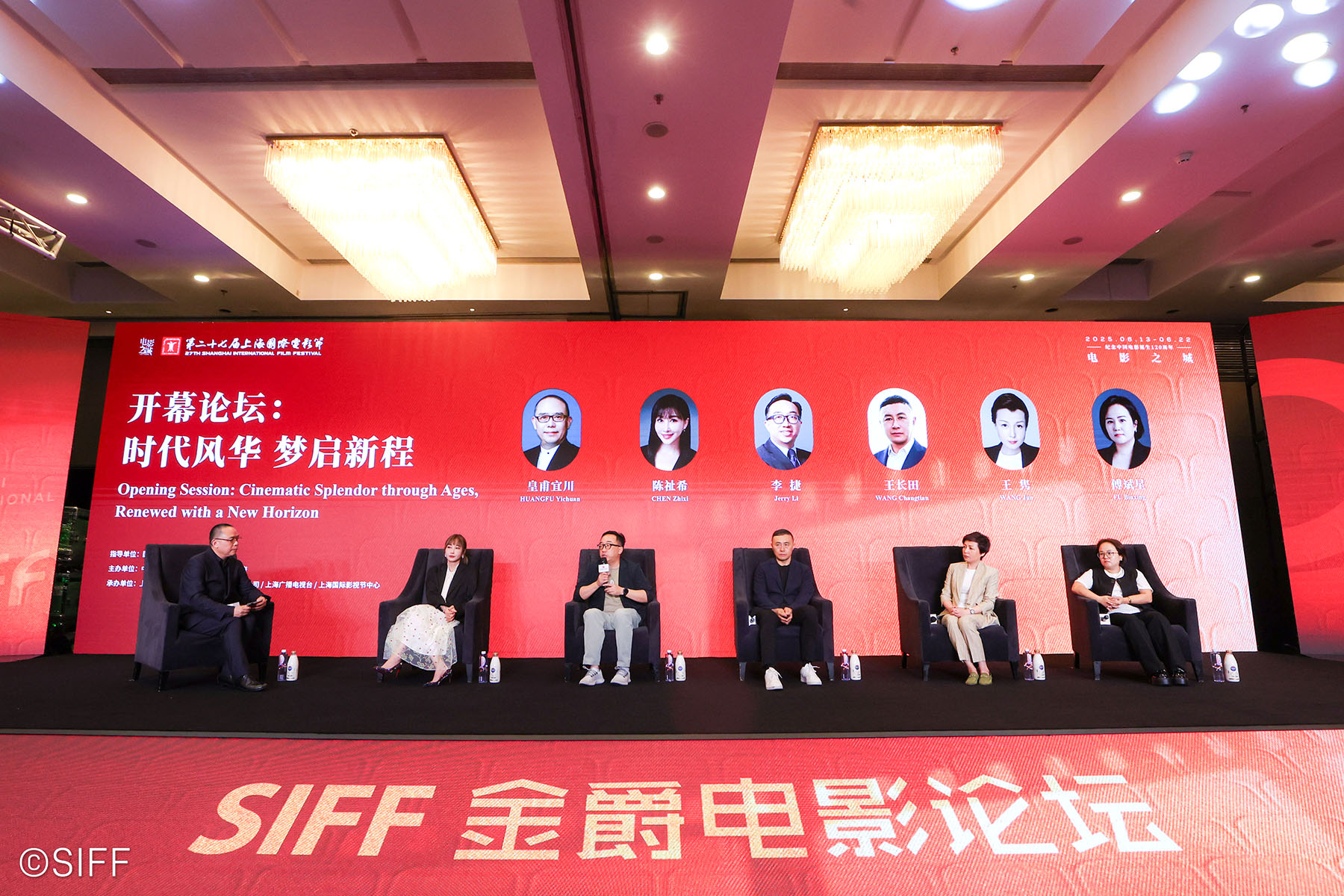Industry insiders discuss luring audiences back to cinemas by focusing on productions with better stories and lower budgets, Zhang Kun reports.

To celebrate new achievements in Chinese films and showcase more than 400 international productions, the 27th Shanghai International Film Festival opened on June 12 in commemoration of 120 years of Chinese cinema.
Founded in 1993, this is China's only competitive film festival approved by the International Federation of Film Producers Associations.
This year, the Golden Goblet Awards competition received an unprecedented 3,900 submissions from 119 countries and regions. Forty-nine are short-listed, among which 38 are making their global premiere at the festival.
She's Got No Name, a film by Hong Kong-based director Peter Ho-Sun Chan, opened the festival.
READ MORE: Shining a light on the young filmmakers of tomorrow
Depicting a real-life incident in Shanghai in the early 1900s, the film was also screened during the 2024 Cannes Film Festival.
Chan reworked the film after Cannes, making the bold decision to split it into two parts. The film's first installment premiered at Shanghai Film City on Saturday, bringing in a record-breaking box-office income of 580,000 yuan ($80,713) for highest single ticket price, according to Liu Yina, head of the film department of publicity under the municipal administration. The movie will be released nationwide on Saturday.
A jury of 21 members from 13 countries and regions led by Italian director Giuseppe Tornatore will pick the Golden Goblet Award winners in five categories — feature-length films, Asian new talent, documentaries, animated films, and short films.
In addition to handing out awards, the festival focuses on markets, forums, and film exhibitions, aiming to build an international platform and promote the development of the Chinese film industry.
"The past decade witnessed China's overall box-office income grow from 10 billion yuan ($1.4 billion) to a stable 50 billion, reaching its height in 2019 at 60 billion yuan," said Li Jie, president of Damai Entertainment, during an affiliated forum on Sunday in Shanghai. Damai Entertainment has served as the official ticketing agency for the film festival for 10 consecutive years.
"We have observed drastic changes in China — film genres and subjects, audience preferences, demographics, and the ratio of domestic to foreign language movies."
He points out that despite the massive success of the Chinese animation film Ne Zha 2 during the Spring Festival period, the domestic film market this year has not performed as well as the previous year. Few new movies achieved the box office threshold of 500 million yuan.

Industry insiders have held many discussions on how to lure audiences back to the cinema, he says. He believes the industry needs comprehensive innovation, from its creative dimensions and production costs to the promotional campaigns.
"We need to start over and reinvent ourselves with greater courage. We are confident that this is a periodic phenomenon. In past decades, the movie industry worldwide has gone through these phases."
Li suggests that film studios place greater emphasis on medium and low-budget productions driven by good stories rather than relying on visual effects and big-name actors. He believes new technology, such as virtual reality and artificial intelligence can help significantly lower production costs.
Wang Changtian, chairman of Beijing Enlight Media Co, also believes "reducing costs is an inevitable direction".
"The industry has been losing money for the past decade. Many big-budget movies encountered funding issues even during filming. This will occur more often in the future," Wang says.
He also suggests the number of new film productions be scaled down as film studios must reduce their reliance on box-office revenue. Current profit-sharing practices must also change to a more reasonable ratio.
Meanwhile, administrators are offering helping hands. Shanghai launched a three-year project to facilitate the development of its movie industry.
Her Story, one of China's top 10 box-office movies last year, is a successful example in which a film benefited from the project during its production process. "We had a special team set up that helped with surveying shooting locations, coordinated with different institutions, and provided promotional campaign support," says Liu.
ALSO READ: Chinese director Bi Gan wins Special Award at 78th Cannes Film Festival
The movie, written and directed by Shao Yihui, not only achieved high box-office revenues and positive reviews, but also provided a rich display that promoted Shanghai's urban image and spirit, becoming a miracle for low-budget movies, Liu says.
In 2024, 42 movies made in Shanghai took up one-fifth of China's total box-office revenues, she added.
Several new film releases this year also received aid from this three-year project, including She's Got No Name, as well as a series of upcoming summer movies, such as Assassin in Red 2, Once Upon a Time in the Middle East, and the animated film Nobody.
Shanghai has 358 cinemas totaling 2,217 screens, with over 100 equipped with advanced projection technology — more than any other city in the world, according to Liu. Thanks to cinema's strong presence, Shanghai's total box-office revenue reached 2.15 billion yuan in 2024, ranking first nationwide.
Contact the writer at zhangkun@chinadaily.com.cn


